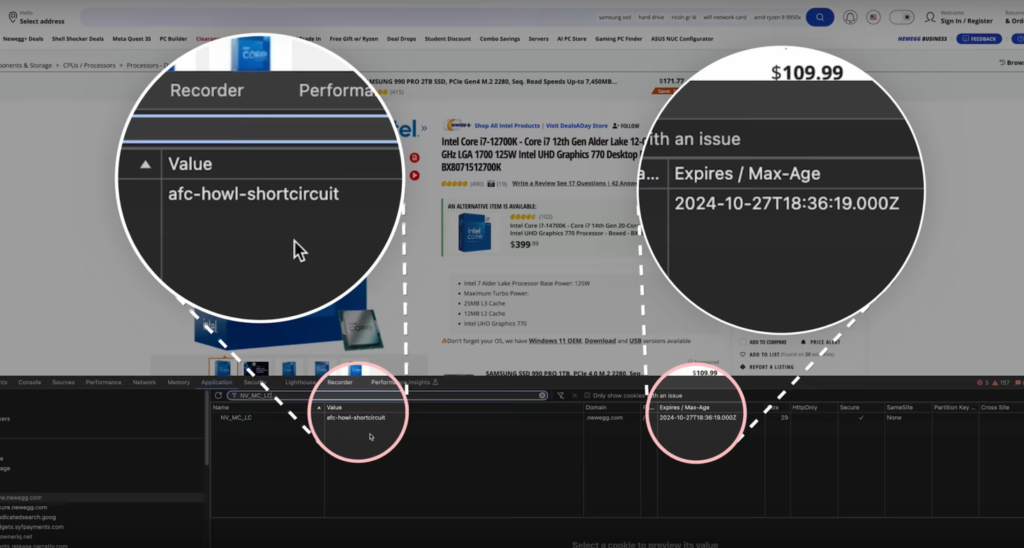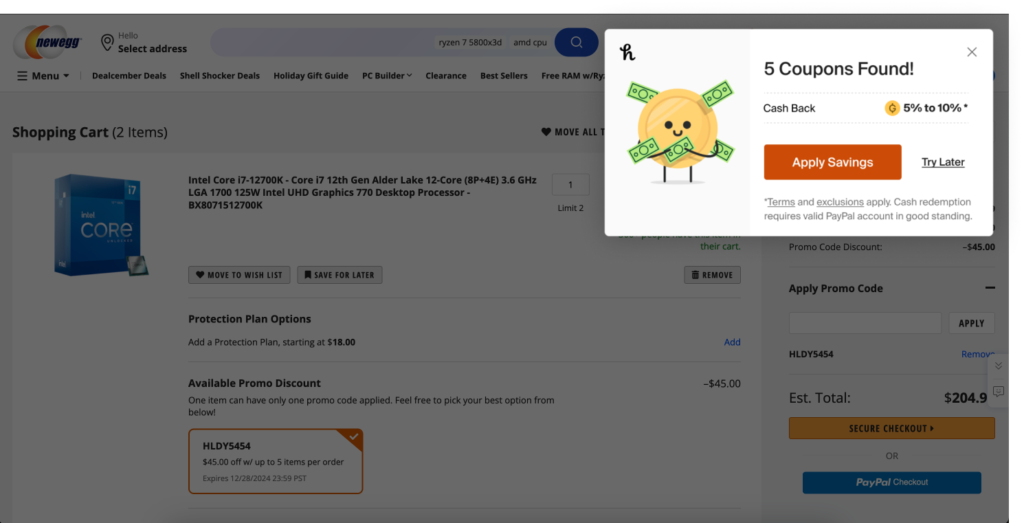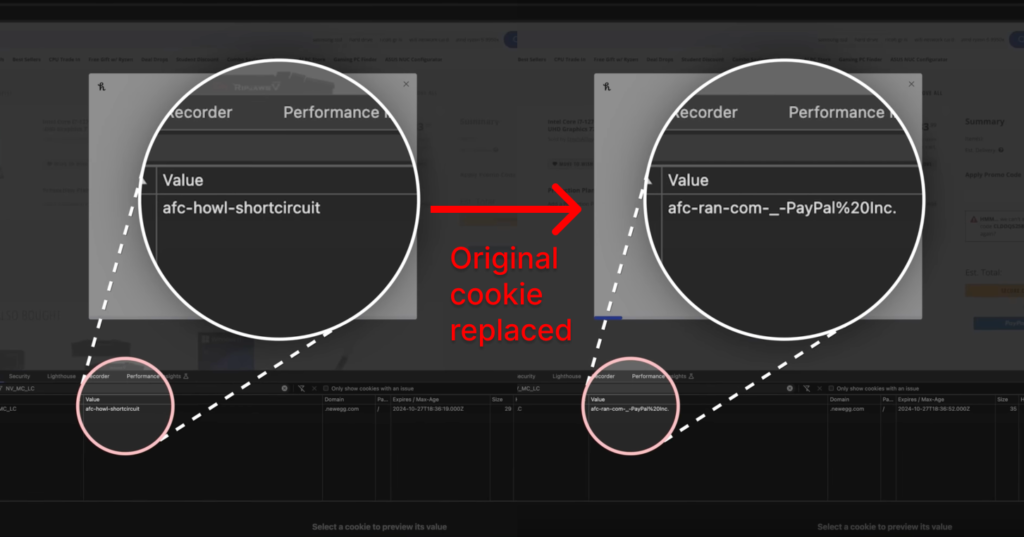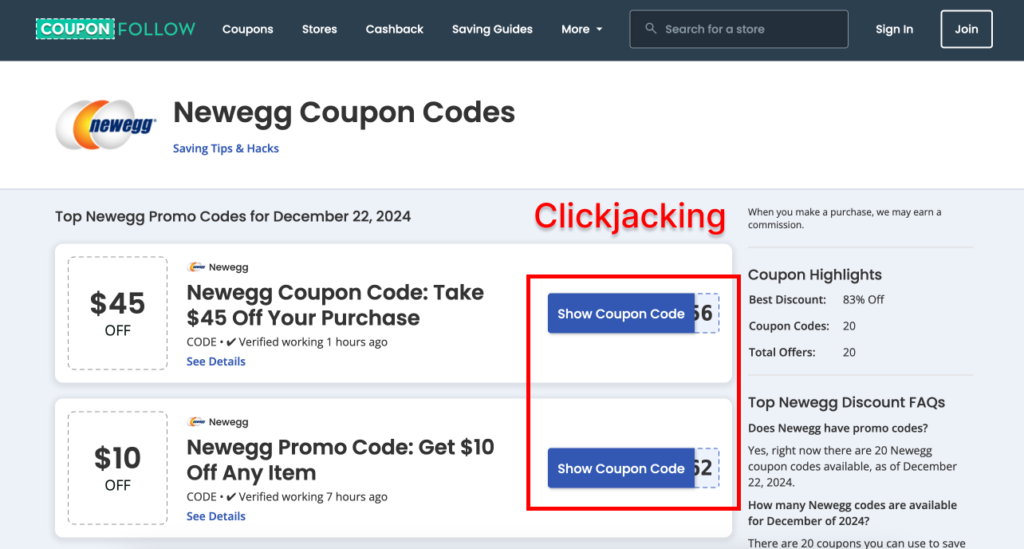Affiliate marketing connects publishers and advertisers by enabling publishers to distribute their products and services through a network of advertisers. These advertisers, often content creators or review websites, promote products and services in exchange for a commission on each sale they generate.
How Affiliate Marketing Works
When an affiliate publisher joins an affiliate program, they receive unique tracking links for each product they promote. These links contain special identifying parameters that allow the program to track user interactions and attribute sales to specific affiliates.
The tracking process begins when a potential customer clicks on an affiliate’s link. At this point, a tracking cookie is placed in the user’s browser. These cookies typically remain active for 30-90 days, during which any purchase will earn the advertiser a commission.

Image: Inspecting a tracking cookie via browser
Most affiliate programs employ a last-click attribution model, meaning the commission is awarded to the affiliate whose link was last clicked before purchase. For example, a potential customer might see a product on TikTok, click an affiliate link and browse the site without purchasing. If they later see the same product in a YouTube video, click that creator’s link and make a purchase, the YouTube creator receives the entire commission as theirs was the last link clicked.
This attribution mechanism has led to the emergence of an industry built around hijacking these commissions with not-so-nice methods. Here’s who does it and how they work.
How Honey (and others) Steal Commission Money from Affiliates
Honey, a browser extension that automatically searches for and applies coupon codes during checkout, exemplifies this practice. To illustrate the scale of this industry, PayPal acquired Honey for $4 billion in 2019. Other major players include browser extension Karma, or coupon repository websites like Groupon and RetailMeNot.
While we’ll focus on Honey’s practices, the same methods are employed across the industry.
Cookie Hijacking Method #1
When a potential customer clicks on an affiliate link, the website is loaded and it places a tracking cookie in their browser.
Honey displays a popup offering to apply coupon codes. When the customer accepts this offer, Honey secretly opens and closes a new browser tab, overwriting the original affiliate’s tracking cookie with its own.

Image: Honey pop-up on a third party website
This means that all commission will be awarded to Honey, despite playing no role in bringing the customer to the website. Honey does this regardless if the coupon is found or not.

Image: Honey replacing tracking cookie with its own
Cookie Hijacking Method #2
Additionally, Honey operates a cashback program offering a percentage of purchases back in “Honey Gold” points. This is a very clever idea as it grabs customer’s attention and gets some of them to click to “claim” the points. Once clicked, Honey inserts its cookie and cops the commission on the purchase.
Analysis indicates that customers receive only a small fraction of the commission value as cashback rewards.
Coupon Repository Website Scams
Coupon websites CouponFollow employ similar commission-capturing techniques through their user interfaces. Their common “click to reveal code” feature opens a new tab of the target shopping website, allowing them to place their tracking cookie.

Image: Clickjacking on a coupon repository website
While presenting themselves as coupon-sharing platforms, these sites primarily focus on capturing affiliate commissions through carefully designed UI patterns that encourage link clicking.
Who are the Victims?
Content creators and influencers bear the greatest impact, as they invest significant effort in product promotion and traffic generation, only to have commissions intercepted by browser extensions and coupon sites at checkout.
Publishers also suffer damage in multiple ways. They are likely to have to pay out more in affiliate commissions as services like Honey “infect” millions devices with their tracking cookies. Additionally, legitimate affiliates may become discouraged from working with publishers due to reduced conversion rates resulting from commission interception.
While consumers occasionally benefit from legitimate coupon savings, they’re often unaware of these behind-the-scenes practices. This raises ethical concerns about supporting services that employ such commission-hijacking techniques.
The Conclusion
While browser extensions like Honey market themselves as money-saving tools, their commission hijacking practices harm the creators who genuinely help us discover products. If you want to support your favorite content creators, consider these steps:
Avoid using commission-hijacking extensions like Honey, Karma and similar tools.
If you do use these extensions, clear your browser cookies before making a purchase through a creator’s affiliate link. This ensures your purchase supports the person who actually helped you discover the product.
The industry is slowly moving away from last-click attribution models, but change takes time. Some retailers are exploring multi-touch attribution systems that split commissions among all affiliates who influenced a purchase.
Credit to MegaLag channel who were an inspiration for this article.
